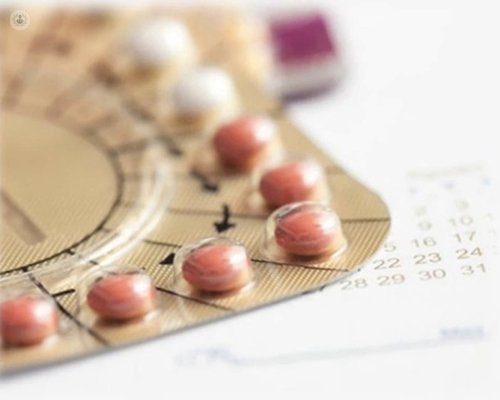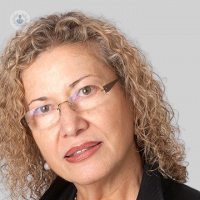What are the risks of HRT?
Written by:From an endocrine point of view, menopause is considered a deficiency of hormones, and oestrogen replacement therapy is used to restore pre-menopausal endocrine levels.

How effective is HRT?
Oestrogen therapy is effective in the treatment of hot flushes in 90% of women, and is considered the gold standard treatment.
Menopausal HRT is primarily used for the treatment of vasomotor symptoms (those relating to the dilation and constriction of blood vessels), such as hot flushes, sweats, and for the prevention of osteoporosis.
HRT has received some bad publicity in recent years regarding the risks of using the treatment. However, recent NICE guidelines provide recommendations on the use of HRT, and distinguishes between oestrogen-alone therapy, and oestrogen and progesterone therapy.
The guidelines also endorse the need for HRT in women with premature ovarian dysfunction (menopause before the age of 40).
Why is HRT needed?
HRT is used in the short term management of the symptoms associated with menopause. These include hot flushes, night sweats, and the prevention of osteoporosis.
HRT treatment can prevent the risk of fractures to the hip, vertebrae and other areas, associated with osteoporosis.
However, long-term use should be discontinued in women who do not suffer vasomotor symptoms and non-hormonal methods should be used for the prevention of osteoporosis.
What are possible risks associated with HRT?
A Women’s Health Initiative (WHI) study showed that HRT treatment can lead to an increased risk of coronary heart disease, stroke, venous thromboembolism and breast cancer in postmenopausal women. Different types of HRT, the mode of application (oral or transdermal) and most likely the dose have different risks attached.
The risk of breast cancer with combined oestrogen/progesterone HRT was related to the duration of the treatment i.e. a significant increase of the incidence of invasive breast cancer among HRT users was reported to show after 4 years of use.
Oestrogen alone in postmenopausal women who had had a hysterectomy did not show any increase in breast cancer risk.
Oestrogen alone does not increase the risk of coronary heart disease or breast cancer.
Oestrogen given via transdermal route is not associated with an increased risk of venous thromboembolism.
The risks and benefits of HRT use in an individual woman depend primarily on her age and other factors. The benefit of taking HRT outweighs the risk in women aged early to mid-50s. After the age of 60 the risk becomes greater than the benefit. The use of HRT should be actively discouraged in women older than 65.
HRT for women with an early menopause
Younger women with premature menopause (before the age of 40 years) or early menopause (before the age of 45 years) should take HRT up to the age of natural menopause which in the UK is around the age of 51 years.
HRT recommendations
HRT should only be prescribed for the short-term relief of menopausal symptoms and for the prevention of osteoporosis, and should be part of an overall strategy to encourage healthy lifestyle, increase exercise, decrease alcohol intake, decrease smoking and fight obesity.
If you want to learn more about HRT, consult a specialist endocrinologist.
Professor Gordana Prelevic is a renowned, London-based consultant endocrinologist. If you would like to book a consultation with Professor Prelevic you can do so today via her Top Doctors profile.


